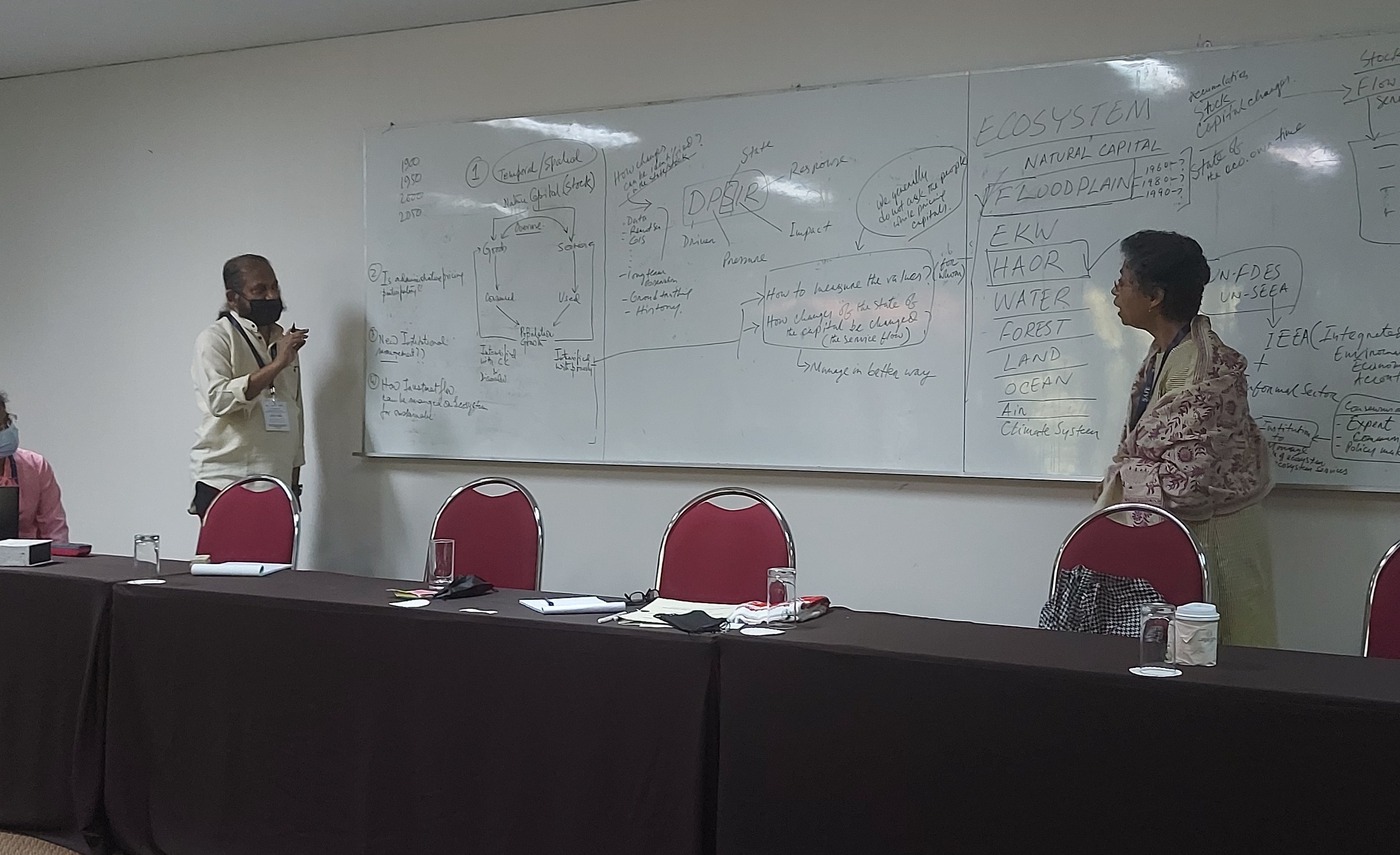-
176A, Vivekananda Park, Mukundapur
Kolkata-700099, West Bengal, India
-
You may send an email
ecosystemservices2023@gmail.com
-
Contact Number
+91 3379637451
Course

Course Overview
Environmental economics as a discipline emerged long back but got into prominence as the policy focus shifted towards economic effects of the state of the environmental resources, the flow of services therefrom and the realization that the livelihood of billions depends on state of the natural capital globally. In the climate change context, the significant role of natural capital in adaption and mitigation planning globally and especially in the global south is drawing attention to environmental economics principles and tools with increased attention. Science of allocating, using, and managing natural capital and accounting for the same in human progress indicators needs to be taught, understood, applied and researched to avoid and improve damages in air, water, land, soil, and forest. How waste can be better managed, commons both local and global all need a basic understanding of principles and tools of environmental economics in a broader sense. The economy-environment nexus is better understood when a systemic understanding is completed by bringing new tools and institutions to augment the current practices.
Who can do this course?
This course on ‘Science of pricing of ecosystem services’ is exclusively focused on the target group who are non-economists and work in the policy-practice domain on environmental issues, working in the fields of environmental conservation, sustainable development and climate change or adaptive and community-based intervention. These practicing professionals, researchers, advocates, media and news editors in the ‘Environment-Science-Society’ interface want to understand the fundamental concepts, subject matter, nature and scope of environmental economics, in general, and economic valuation of nature services in particular, to equip themselves with a science-led decision support system. The course equally intends to engage academia, policy practitioners, government and corporate administrators and as well green entrepreneurs, who do not have a formal understanding of environmental economics tools, and instruments by training or through academic curriculum.
-
Two-day crash course
-
Five-day short course
-
One-week course
Onsite Course Locations
India (South Asian Forum for Environment; Progyan Foundation for Research and Innovation & Global Change Program, Jadavpur University), Bangladesh (Bangabandhu Seikh Mujibur Rahman Agricultural University & Jahangir Nagar University), Thailand (AIT), Bhutan (UWICER).
Course curriculum for advanced-level Policy Planners, Stakeholders and Practitioners
This course focuses on
-
Understanding the economic approach to assess ecosystem services that improve human well-being.
-
Learning, the economic theory that illustrates the links between different ecosystems (nature capital) and the economy.
-
Recognizing ecosystem services in relationship to economic decision-making and the Millennium Ecosystem Assessment (MEA) framework.
-
Explaining methods used in the non-market valuation of ecosystem services, its practical advantages and limitations.
-
Enumerate the role of various governments and market institutions in influencing the efficient delivery of ecosystem services worldwide.